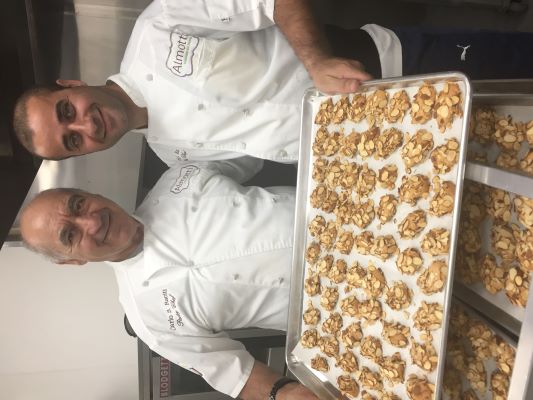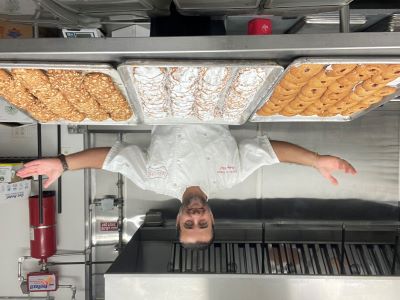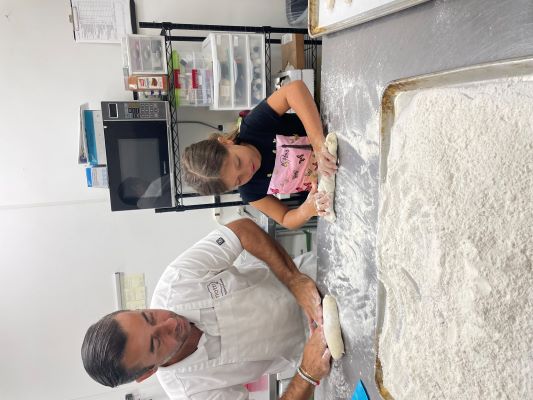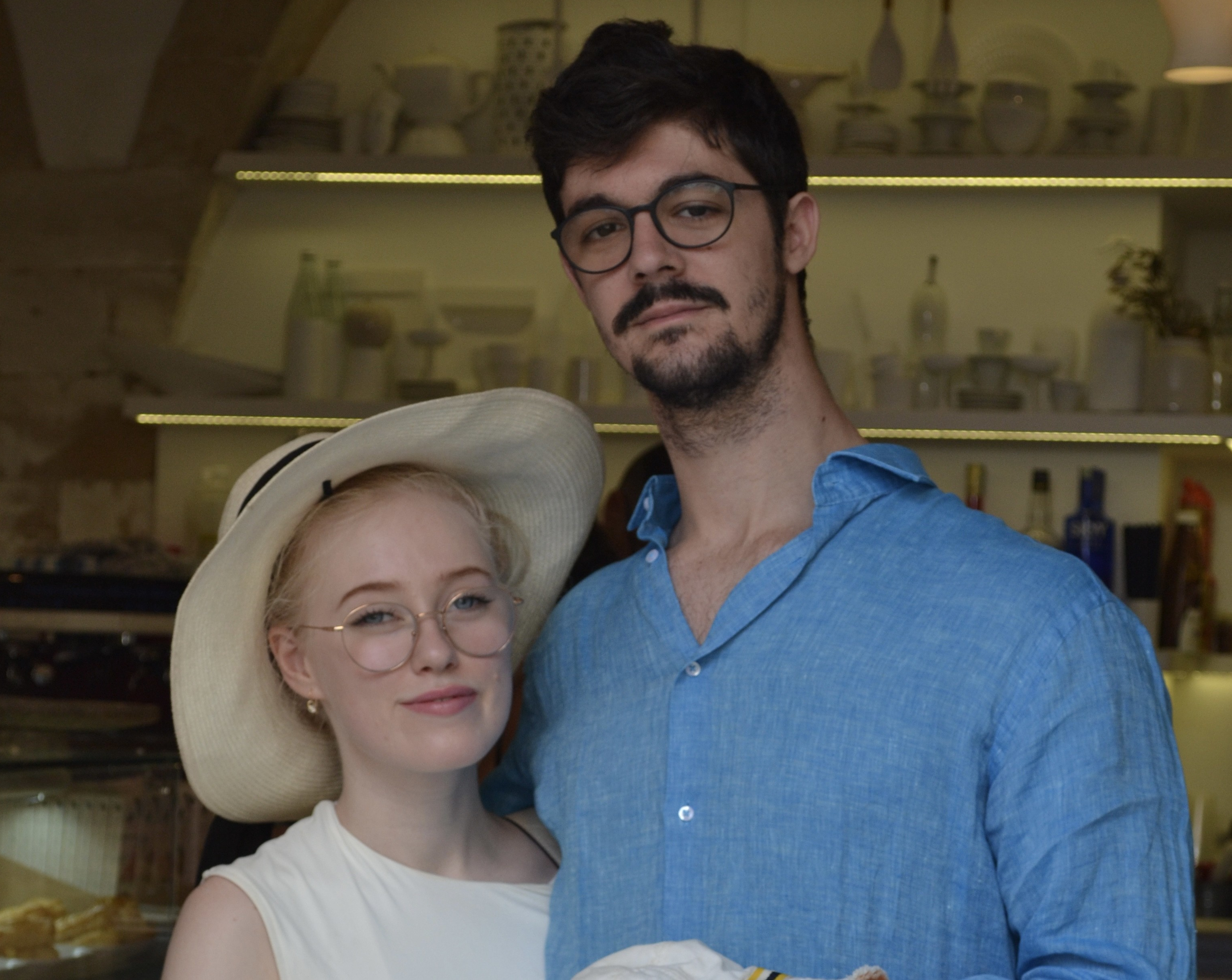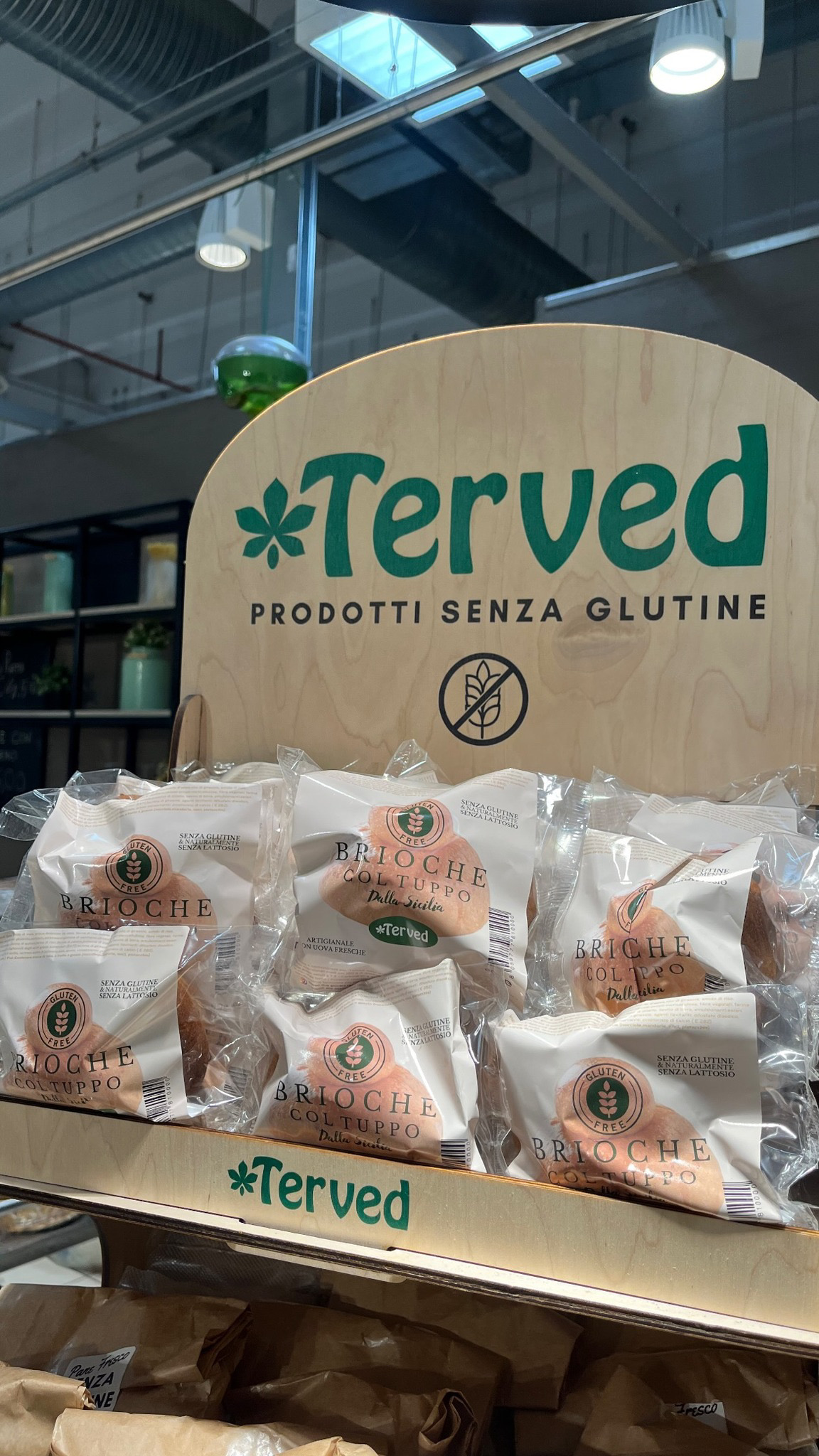Among his fondest memories of growing up in Viagrande, Sicily, Carlo Raciti remembers days he stayed home sick from school. He'd step into his family kitchen and roll out fresh pasta or bake cookies to surprise his mother, Caterina Scuderi, when she came home from teaching.
"I was always involved with flour and dough," Carlo recalls. "That was my passion. That's what I was supposed to do."
But his father, Mario Raciti, who had grown up in the bakery business, suggested otherwise.
"He always told me it was too hard," Carlo says. "He said, 'Don't do it. It's too much sacrifice, and it's very little gain.'"
So, instead, Carlo pursued a common Sicilian career path: tourism and hospitality. He did just about everything from cooking and the front of the house to hotel management.
It was overwhelming and led him to drop everything and take a long vacation to Miami. There, he'd meet his wife, Rebecca Bechara, and get an invitation that would eventually lead him back to his childhood passion and opening Almotti, Miami's first dedicated gluten-free bakery, which sells cookies, pastries, celebratory cakes, and bread with nationwide shipping.
Carlo and I chatted about his influences, career pivot, why he's embraced gluten-free baking, advice for other entrepreneurs, and more.
How did your family influence your passion for baking and pastry arts?
My grandma started baking bread during the war while my grandpa was stationed in North Africa. She had to feed a big family, so she started baking bread in their backyard in Acireale. They had a brick oven, and that's how everything started.
They opened a retail bakery, making bread, and all the family baked there. My dad is the smallest of the five kids. He helped a lot and made the bakery deliveries on his bicycle.
After many years, my uncle opened Panificio Raciti in Acireale, which is still there. My cousin now runs it.
During the summertime, when there was no school, there was no one at home to take care of me. So, since I was six, my parents used to drop me off at the Panificio at 6:00 AM. I spent those days sitting in a little chair watching my Zio Tanino with my cousin Marcello and another assistant making the bread. And that's where my passion really came in: spending that time inside the Panificio. And that's influenced me 100% for my future and career today.
Mario Raciti (left) grew up making deliveries for his mother's bakery, a business that inspired Carlo to pursue pastry arts.
How and why did you pivot to becoming a pastry chef?
I was working in hospitality back in Italy when I left my job. I decided to take a vacation with friends, and we ended up in Miami for three months. Then, I met my wife.
I went back to Italy for a year and then returned by myself. During those three months in Miami, I had done a lot of cooking. A friend of mine, through my wife, said, "When you come back, we'll do a catering company, and you're going to run it, or you're going to be the chef."
So when I came back, we developed the plan and launched a Sicilian-style catering company. That was right before the crash in 2008.
Besides catering, I collaborated with an Italian association called Society Dante Alighieri, which is worldwide. They hired me to teach cooking and baking classes for Italians and Americans. Since they were learning Italian, I taught these baking classes in Italian. In the meantime, I started doing a bunch of catering and events.
My wife and I wanted to start a business—a bakery. That was the idea. So, in 2009, we moved to Italy and took a sabbatical there. I then returned to school to get my certification in pastry because culinary is very wide. So, I wanted to specialize.
During that year, I worked in a few bakeries, where I learned many techniques. I took different courses throughout the year with World Champion Pastry Chef Roberto Lestani and Pastry Chef Carmelo Recupero, among others. In Catania, I worked for Pasticceria Quaranta, one of the top bakeries today.
Then, I worked alongside Giuseppe Giangreco, the master baker of the product I started making: pasta di mandorla, the almond pastry cookie that's made us so popular.
Carlo Raciti started selling at a farmers market. He now ships nationwide.
Why did you decide to focus on the gluten-free market?
These are almond-based cookies, so they are naturally gluten-free. When we returned to Miami after a year in Italy, we developed our plan to open a retail bakery.
Looking for places was very challenging. There was no Italian bakery in Miami. My wife said, "Pick the six easiest items," and those were cookies. We decided to sell at the farmers market. It was a $500 investment, and we sold out in about two hours.
Three months later, we were doing five farmers markets all over Miami. We never went back to the original plan or made a retail bakery because we saw the opportunity to eventually become a wholesaler with our gluten-free product.
Making it gluten-free was a business decision. I'm very attached to the community where I live, and I had feedback from people that there weren't enough gluten-free options.
We moved into a facility seven years ago, and I said, "We'll convert it 100% and do it the right way so there is no cross-contamination."
We became the first dedicated gluten-free bakery in Miami and South Florida in general. As we built up a clientele over the years, I started hearing the story about people getting sick with Celiac disease and so on. My daughter Lucia was dairy-intolerant when she was younger. Personally, I had a rash from eating too many processed products that contained gluten. And I realized that it was better for our clients and the community.
Many people say, "You're Italian. Why are you making gluten-free?" But this is the reason.
Carlo Raciti rolling dough with daughter, Lucia.
What advice would you give budding bakery owners?
Definitely get some experience, at least two to three years working in a bakery, first to understand if it's something that isn't for you.
If that person is going to be a baker like me, hands-on in the operation, they need to have the passion to do it because the amount of hours going through it can be very overwhelming.
It is very important with any profession that whatever you do, you do it with passion and love because you spend so much time that if you do not enjoy it, then it could be very challenging.
What are your future plans?
We're going on 10 years, and we're looking to grow. Going national has always been our dream. I know it's very hard. It's been very challenging because taking a high-quality artisanal product to a national scale where your margin is very small almost makes it impossible. But little by little, we will.
We are looking at 2025 as the year to be part of a national show where we can expose our product.
The business is our third baby; we have two kids and don't have family around, so this has been very challenging for us. Taking care of the kids has been our first priority. And then the business. But now my son, Mario Carlo, is 13; my daughter, Lucia, will be nine pretty soon. So we can dedicate a little bit more time to the business.
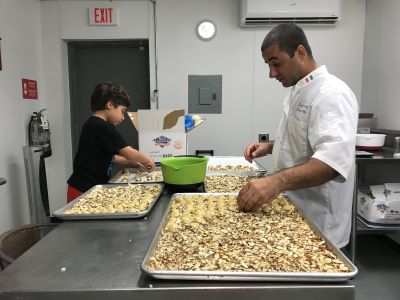
A younger Mario Carlo helping his father
What do you hope to share with customers?
Because we ship nationwide, people all over the nation have the opportunity to try my products. They connect to my childhood back in Italy, and customers can experience going to an Italian bakery because our packaging is clear, where you can see through and choose the cookie you want. They may want a cookie that is a little bit more well-done or less done. So, you can choose, and it's like taking a trip to Italy, where people have a product that is clean with only a few ingredients, very high quality, made by hand. They can see that every single bite is different. And then they realize that it's not just the business, it's not just making money, it's sharing a culture that goes over hundreds of years. The main cookie that we do goes back to the Greeks. So it's a tradition, it's cultural, and we want this to continue.
If you enjoyed this article, consider subscribing to my newsletter for more content and updates!

